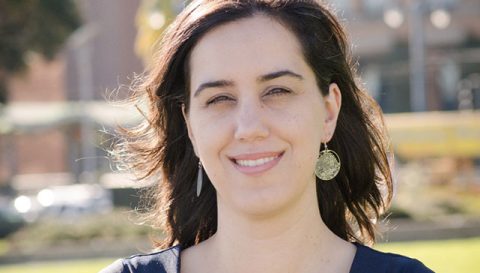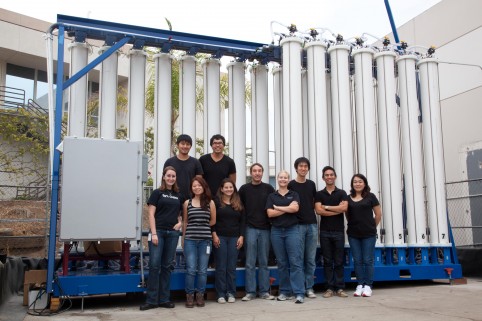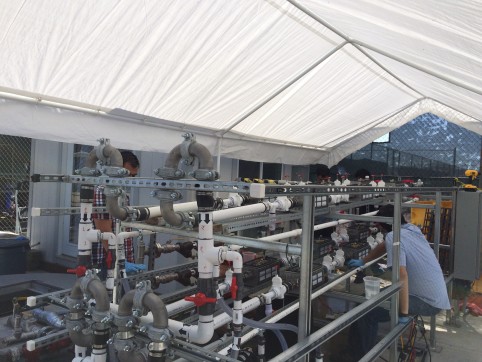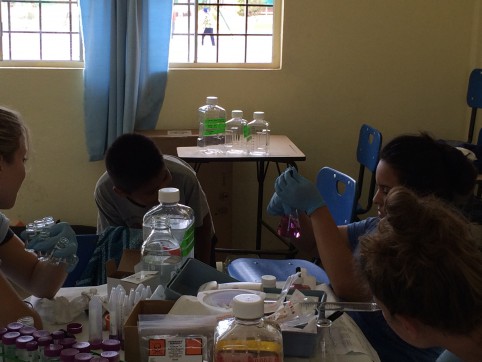Global Ocean Sampling Expedition Planned for 2016
Over the past 12 years, JCVI’s Global Ocean Sampling (GOS) Expedition has continued to explore all of the world’s oceans, along with major inland seas such as the Baltic and Mediterranean. The research team maintains ongoing sampling in the waters off of California and in extreme conditions such as Antarctica and the Amazon River. JCVI’s effort is the largest marine microbial study to date, quantifying both the taxonomic and functional diversity of microbes within these environments, and examining how both the natural environment and humans shape these communities.
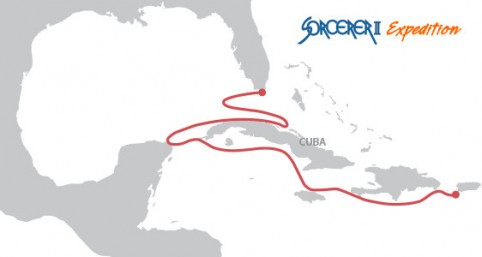
Planned 2016 route for the Sorcerer II Global Ocean Sampling Expedition
The scientific goals and ideas on the first Sorcerer II Expedition sprung from the sequencing and analysis of Methanococcus jannaschii by Dr. Craig Venter and his research team after the organism was isolated from a hot, deep-sea vent in the Pacific. M. jannaschii is from the Archeal branch of life and is also known as an autotroph, in that it makes all it needs for survival from carbon dioxide, nitrogen, and hydrogen in water. Dr. Venter and the team continue to believe that the unknown and unseen world in the oceans is vital to understanding diversity on the planet and potentially holds the key to solving growing environmental issues.
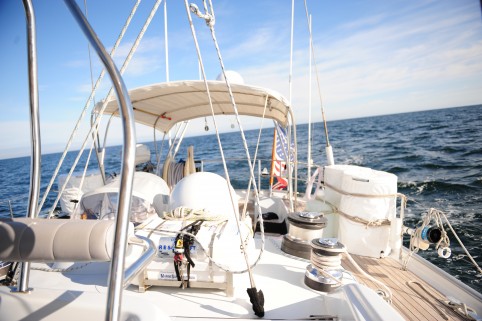
The deck of the Sorcerer II is equipped with scientific tools including advanced water filtration and communications systems.
Past GOS efforts have been funded by The Gordon and Betty Moore Foundation, the Beyster Family Foundation Fund, Life Technologies, and additional anonymous donors. To date, the GOS team has analyzed billions of DNA sequences and discovered over a billion new genes, 1700 unique protein families, and assembled dozens of whole genomes for uncultivated microbes. The GOS data are freely available to the public and have resulted in follow-on research across several fields by scientists worldwide. The GOS team utilizes a shotgun metagenomics technique to examine the presence and possible role of microbes in open ocean ecosystems. JCVI has ongoing research internally and with international collaborators to characterize the unexplored microbiomes of marine, estuarine, freshwater, and terrestrial environments around the world.
Highlights of past and present expeditions:
- The Gordon and Betty Moore Foundation was a significant funder of the first phase of the GOS Expedition from 2004-2006. To date, there are 41 publications from this phase, and an evaluation of the scientific impact of their support shows that these publications have been cited over 2700 times.
- During the J. Robert Beyster and Life Technologies Foundation 2009-2010 Research Voyage of the Sorcerer II Expedition, aquatic samples were collected by filtration from over 300 aquatic environments in 12 nations and international waters, resulting in over 1100 possible metagenomic samples. The data generated has fostered collaborative projects between JCVI and institutions in eight nations and formed the focus of nine postdoctoral projects and five graduate student theses. The expedition extensively cataloged the microbial diversity and function of nearly all global oceans and marginal seas, and has further developed a mechanistic understanding for the distribution of microbes and function that can be applied to all aquatic environments.
- In 2014, JCVI embarked on a sampling expedition of the Amazon River and its tributaries, which contains 1/5th of the Earth’s river flow. Long recognized for the biodiversity of visible organisms, the Amazon is understudied with regards to the diversity of microorganisms and the goal of this effort is to continue to increase our understanding of the biological diversity of Earth.
- Since 2008, JCVI scientists have traveled to the continent of Antarctica. As one of the most untouched regions on the planet and home to the world’s largest marine ecosystem, Antarctica and the Southern Ocean are invaluable to JCVI research involving climate change. Major objectives of the fieldwork are to understand how changes in micronutrient availability, temperature, and pCO2 impact growth, community composition, and nutrient utilization in Southern Ocean phytoplankton. Recently JCVI researchers in collaboration with Scripps Institute of Oceanography uncovered a series of complicated relationships among marine microbes in their fight for important resources, like vitamin B12, that has critical consequences for coastal Southern Ocean food webs. Scientists at J. Craig Venter Institute, Scripps Institution of Oceanography and Other Collaborators, Publish Paper Outlining New View of Microbial Relationships in Southern Ocean Phytoplankton Blooms.
2016 Global Sampling Expedition Addresses Plastic Pollution & Environmental Policy
The planned 2016 GOS Expedition, led by Chris Dupont, Ph.D., Assistant Professor, combines the basic science approaches of previous expeditions with applied science. The team plans to study the wide variety of marine protected areas (MPAs) found throughout the Caribbean Sea, the Florida Straits, the Gulf of Mexico, and the Sea of Cortez. The goal is to profile the ecosystem health of the MPAs and the impact to them by fishing, pollution, habitat degradation and climate change. With dramatic differences in the levels of protection of various MPAs, JCVI researchers will assess the conservation strategy of each MPA then evaluate the outcomes of those strategies on a microbial level, with the goal of making policy recommendations for better ocean preservation.
Chris also proposes to examine the microbes found on plastic pollution in the ocean. Plastic is the most common type of marine litter in the world, and it is wreaking untold havoc on marine ecosystems. This pollution, currently 50 million metric tons per year, has been examined by JCVI researchers and collaborators in preliminary studies, and they have found that these plastics harbor microbes that are not normally found to be abundant in the ocean. With 100 million tons of plastic in the “Great Pacific Garbage Patch”—visualize Texas covered with plastic and floating in the Pacific Ocean, —there is a real and timely need to address the declining health of our oceans. Chris hopes that this research will not only further characterize what microbes are found on plastic pollution, but will also provide the genomic information necessary for building designer microorganisms for the biological degradation and recovery of plastic waste
Exploring the microbes of the oceans is even more exciting and promising than it was when JCVI launched the Sorcerer II Expedition from Halifax, Nova Scotia in August 2003. Each JCVI expedition has led to new discoveries that have deepened our understanding of the world’s waters. What else will we discover in the coming months and years? Whatever it may be, count on JCVI being at the forefront of the discovery. There are many ways that you can support the next phase of discovery and help JCVI scientists find solutions to these environmental challenges. For more information about our GOS expeditions, as well as details on partner opportunities for our 2016/2017 voyages, please contact Katie Collins, [email protected].
